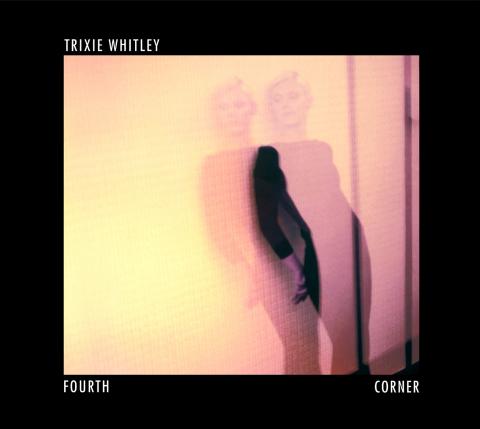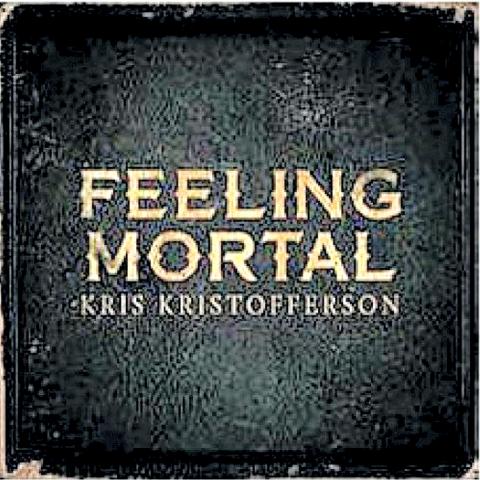FOURTH CORNER
Trixie Whitley
Strong Blood

Pain, desire, rage, sorrow, determination and loneliness course through Trixie Whitley’s bluesy moan on her debut album, Fourth Corner. She’s haunted in ways both elemental and cerebral.
Whitley, 25, is the daughter of Chris Whitley, the hard-living Texas bluesman who died in 2005; she grew up hearing him perform in studios and onstage. But Trixie Whitley, whose mother is Belgian, also spent years as a member of theater and dance troupes in Europe before moving to New York City in her teens. After she made an EP, Whitley joined Black Dub, the producer and guitarist Daniel Lanois’ group, which released an album in 2010. The group’s smoldering grooves and reverberant guitars were a perfect fit for Whitley’s own instincts, but she’s even more radical on her own.
Whitley’s mercurial, dramatic songs aren’t tied to the standard forms or plain rhetoric of the blues or pop. Her melodies hop and swoop asymmetrically, and most of them ride choppy patterns of distorted guitars, played and layered by Whitley, that circle and seethe until she’s sung all she needs to say. Hotel No Name has the buzzing, roaring guitar of Neil Young and Crazy Horse; while Silent Rebel Pt 2 hints at Eastern modes. Need Your Love ticks and claws like a Radiohead track, reaching its pleading chorus — “I need your love/I need to feel with you right now” — by way of considerably less clear-cut verses:

Living in the depths of our constellation
With saviors I’ve dared not see
I’m living off of deprivation
Tomorrow may not be.
Now and then, when guitars give way to keyboards (played by Whitley’s co-producer, Thomas Bartlett), she has a more straightforward soul side, approaching Alicia Keys territory. Steady keyboard arpeggios and a moody backdrop of strings carry the album’s first single, Breathe You in My Dreams, a confession of solitary longing that crests in an urgent call-and-response.
Last year Whitley released solo versions of four songs from the album on an EP, Live at the Rockwood Music Hall. But in the studio she and Bartlett have made them darker and eerier; strings, electronics and percussion add new shadows and implications. Whitley’s torments are as much philosophical as personal: “Condemned in the eye of a sleeping mind/Wearing out the window of time,” she sings in Fourth Corner. Yet even when she’s inscrutable, she’s passionate.
— JON PARELES, NY TIMES NEWS SERVICE
FEELING MORTAL
Kris Kristofferson
KK Records
Kris Kristofferson is 76, and he’ll be the first to tell you what that means. “Wide awake and feeling mortal” are the first words on the first song of his new record, Feeling Mortal. Soon afterward he sings, “I’ve begun to soon descend/like the sun into the sea.” Well, he deserves respect. Let him use a cliche if he wants to. What counteracts the cliche is that no big lessons about existence follow:
Pretty speeches still unspoken
Perfect circles in the sand
Rules and promises I’ve broken
That I still don’t understand.
Over the last 20 years or so a well-signed late-career path has been built for people like this: typically male, English-language, wriggly-persona singer-songwriters born between the mid-1930s and late ‘40s, role-expanders and wild cards. (Among others, Johnny Cash, Bob Dylan, Willie Nelson, Bobby Bare, Nick Lowe.) They’re making senior-outlaw records. They can strip off layer after layer until they’re basically releasing demos; dress their productions up in slick period sounds or invented aesthetics; interpret songs from wherever. There are labels ready to market this music, clubs ready to book it, a reliable stable of musicians to play it and almost standardized arrangements and production techniques — fiddles, accordions, acoustic bass, brushed drums. The requirement of the central figure is that he must intimate a grave consciousness about aging.
It’s a game, but Kristofferson plays it well. He had a croaky voice in his 30s and even then was writing well about death-drives and shaky mornings. (He’s been writing explicit old-man reflections for a little while now; his album This Old Road, from 2005, contained a song called Thank You for a Life that seemed like a preparation for disappearance.) On Feeling Mortal, produced by Don Was, with a band including the pedal steel guitarist Greg Leisz and the violinist Sara Watkins, he sounds so relaxed that he’s practically supine, but there’s work and thought going on inside him.
You’ll want a lyric sheet. Kristofferson’s voice wavers, indicating general pitch areas rather than specific notes, and he doesn’t use it artfully to stress images or ideas as he rolls through the words. Some of those lyrics though can be dense and strong, working inside and outside the styles and structures of his best years.
For the most part, he’s looking at himself. There’s a song in which the songwriter compares himself to a boat with torn sails. There are some second-person songs that are really altered first-person: Just Suppose, aimed familiarly toward a guy who’s preparing to chase an old girlfriend; and Stairway to the Bottom, which is an almost classical mid-1960s-style country-music interior monologue. (“I watch you climb that stairway to the bottom/every evening, in that mirror on the wall.”) And You Don’t Tell Me What to Do, the album’s fullest track in sound and word, comes from the point of view of the songwriter’s inner spirit, which might be different from the songwriter himself.
But its most outwardly shaggy song, with buzzing guitar strings and a couple of places where Kristofferson laughs at himself while singing, turns out to be its most stable and wise: The One You Chose, directed at a mate, ends with lines that contain wisdom in their great uncertainty.
Holding on to something that keeps holding us together
Stronger than the circumstances tearing us apart
I’ve just got a feeling, if I’m wrong you can correct me
I believe I just sang my way back into your heart.
Those aren’t the album’s closing lines, but they should be.
— BEN RATLIFF, NY TIMES NEWS SERVICE

The canonical shot of an East Asian city is a night skyline studded with towering apartment and office buildings, bright with neon and plastic signage, a landscape of energy and modernity. Another classic image is the same city seen from above, in which identical apartment towers march across the city, spilling out over nearby geography, like stylized soldiers colonizing new territory in a board game. Densely populated dynamic conurbations of money, technological innovation and convenience, it is hard to see the cities of East Asia as what they truly are: necropolises. Why is this? The East Asian development model, with

June 16 to June 22 The following flyer appeared on the streets of Hsinchu on June 12, 1895: “Taipei has already fallen to the Japanese barbarians, who have brought great misery to our land and people. We heard that the Japanese occupiers will tax our gardens, our houses, our bodies, and even our chickens, dogs, cows and pigs. They wear their hair wild, carve their teeth, tattoo their foreheads, wear strange clothes and speak a strange language. How can we be ruled by such people?” Posted by civilian militia leader Wu Tang-hsing (吳湯興), it was a call to arms to retake

Desperate dads meet in car parks to exchange packets; exhausted parents slip it into their kids’ drinks; families wait months for prescriptions buy it “off label.” But is it worth the risk? “The first time I gave him a gummy, I thought, ‘Oh my God, have I killed him?’ He just passed out in front of the TV. That never happens.” Jen remembers giving her son, David, six, melatonin to help him sleep. She got them from a friend, a pediatrician who gave them to her own child. “It was sort of hilarious. She had half a tub of gummies,

The wide-screen spectacle of Formula One gets a gleaming, rip-roaring workout in Joseph Kosinski’s F1, a fine-tuned machine of a movie that, in its most riveting racing scenes, approaches a kind of high-speed splendor. Kosinski, who last endeavored to put moviegoers in the seat of a fighter jet in Top Gun: Maverick, has moved to the open cockpits of Formula One with much the same affection, if not outright need, for speed. A lot of the same team is back. Jerry Bruckheimer produces. Ehren Kruger, a co-writer on Maverick, takes sole credit here. Hans Zimmer, a co-composer previously, supplies the thumping